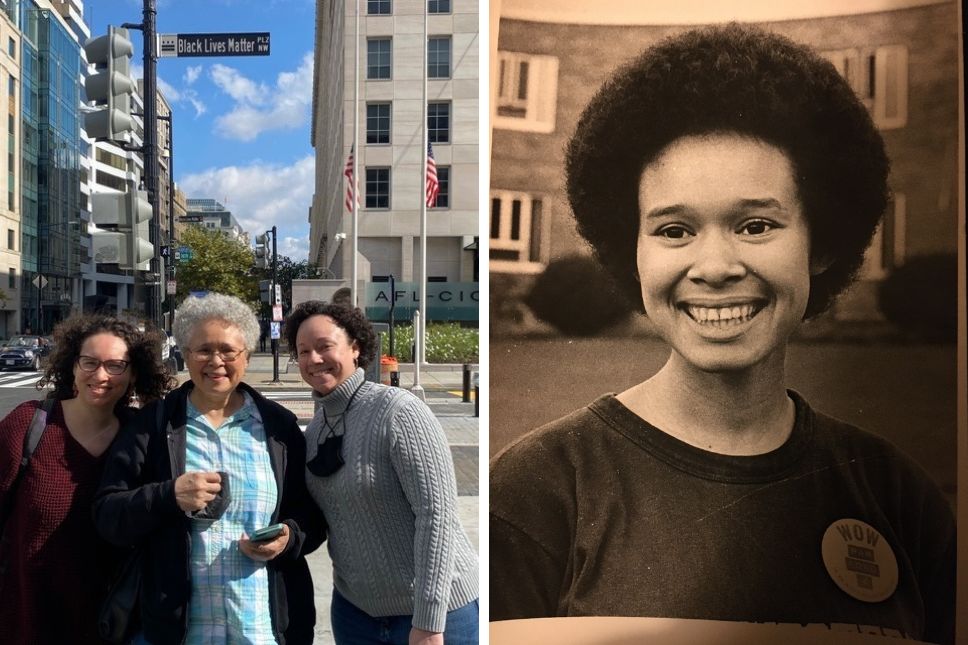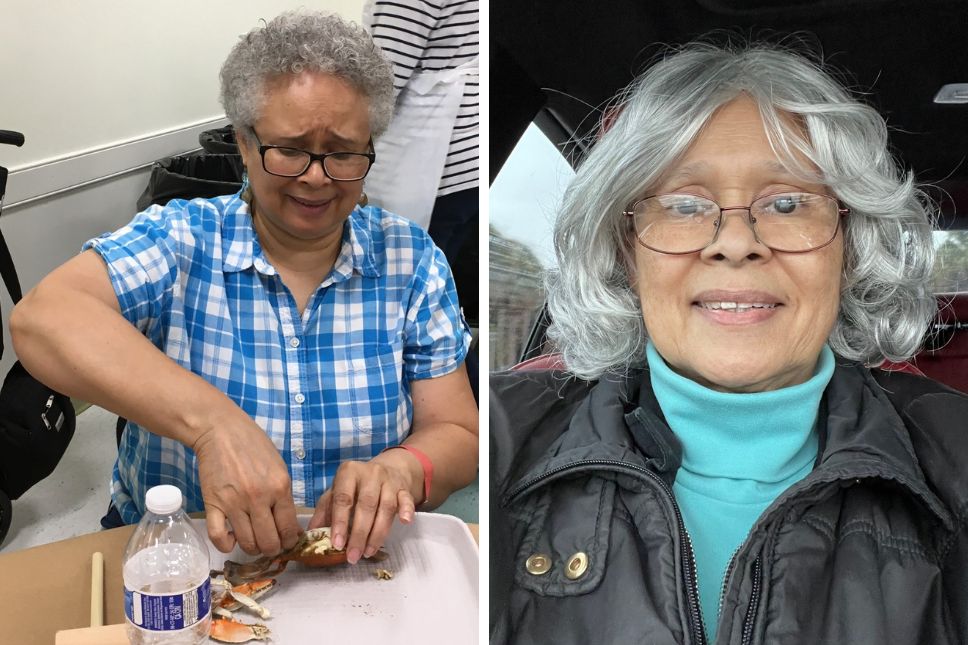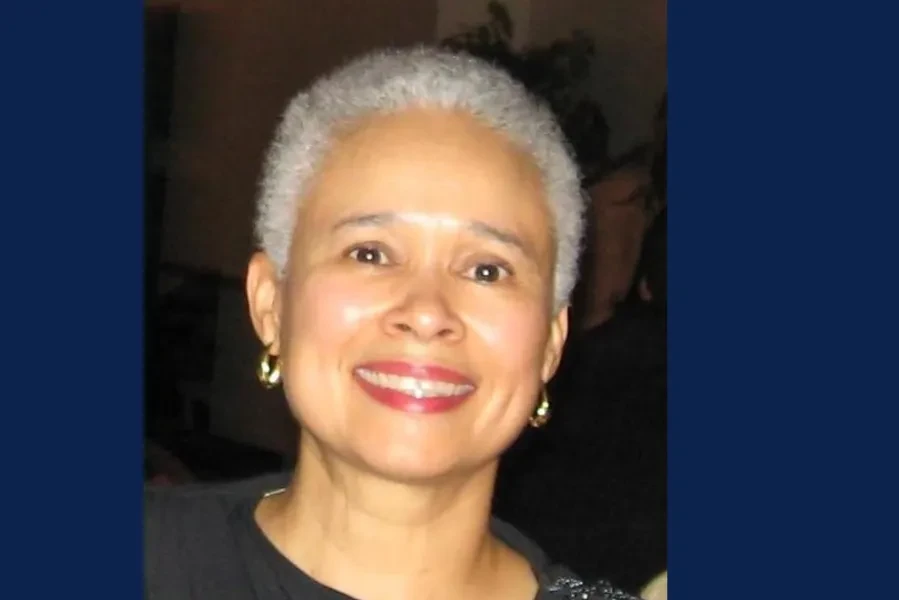Dr. Pamela Ford Murphy is fighting a battle with stage IV ovarian cancer, but her diagnosis won’t stop her from working as a full-time faculty member at the University of Arizona Global Campus (UAGC).
She has more to do to help her students, fellow staff, and more before she retires as Lead Faculty and Associate Professor in the Department of Behavioral Sciences at the University of UAGC, where she teaches statistics and research methods and is a mentor for part-time psychology professors.
“Ultimately, my health will have something to do with when I retire,” Dr. Murphy says. “I will be 70 years old in a little less than two years, and that was my original target for retirement. Depending on how my health issues go, I might have to retire earlier.”
Helping other people has been her mission since she was a teenage girl.
“Ever since I can remember, I have wanted to help people,” Dr. Murphy says.
Dr. Murphy’s diverse career of nearly 30 years spans a variety of fields, including graphics and printing, writing and publishing, computer software development and support, business management, and education. She is also a proud mom of two adult daughters, one in her hometown of Washington, DC., and one in Florida.
Read more about our Faculty of the Month honoree Dr. Pamela Ford Murphy, and discover how she is battling cancer while working as a full-time instructor.
A Coal Miner’s Granddaughter
Not only was Dr. Murphy born and raised in the District of Columbia, her father was as well. Her grandfather, one of several siblings, was a young coal miner from Princeton, West Virginia — a town where boys went to work in the coal mines when they turned 14 years old. Her great-grandfather, also a coal miner, died as the result of injuries sustained in a coal mine cave-in. Her grieving great-grandmother died six months later, leaving several children behind. Relatives took in all the younger children while other siblings continued working in the mines. In the 1920s, when much of the family moved to DC, they would connect with Dr. Murphy’s maternal side and a wedding later ensued.
Both of Dr. Murphy’s parents had high school diplomas — and they were clear about her educational path. “They told me at a young age that I was going to go to college, but they weren’t going to be able to pay for college, so I had to work hard,” she recalls. “They ingrained that in me. In order to get into a school, I was going to have to do well in school all the way through.”
An obedient daughter, Dr. Murphy did what her parents told her to do. She excelled in high school and took several AP courses. She received a Bachelor of Arts in Graphic Design from Hampshire College, a private liberal arts college in Amherst, Massachusetts, where she gained an appreciation for independent learning.

Left: Dr. Pamela Murphy with her daughters, Sophronia Vachon and Melissa Martin, at Black Lives Matter Plaza in Washington, DC.; Right: Dr. Murphy as an undergraduate, circa 1975.
An Inspiring Career
Jumping right into career No. 1, Dr. Murphy was a graphic designer for printing companies and then a small advertising agency.
After working in graphic design for many years, Dr. Murphy decided to return to college. She received an MBA from American International College in Massachusetts and spent career No. 2 initially designing and producing user manuals, then moving into software testing, systems analysis, and computer training.
Dr. Murphy’s third career (education) came about when she moved from Massachusetts to Virginia in the 1990s. She was hired to teach computer and business courses at a private junior college, and eventually also taught adult education classes (GED preparation and computer literacy), community college classes (computer software), and high school (subjects included graphics/printing, computers, and math).
In 2009, Dr. Murphy received her PhD in Educational Research and Evaluation with a concentration in Statistics from Virginia Tech, which led her to teach all levels of higher education, with a focus on the subject area of statistics and research methods.
In 2010, she started at the University as an associate faculty member and became full-time in 2012. She currently teaches Statistics and Research Methods in the undergraduate Psychology program and Research Design and Methods in the graduate-level Psychology program, and she occasionally works with doctoral students on dissertations and applied doctoral projects.
Dr. Murphy designed three psychology courses at UAGC and remains responsible for maintaining them. As lead faculty, she also checks in with the part-time psychology instructors.
Emergency Room Visit Leads to Cancer Diagnosis
It was late last September when Dr. Murphy knew something was happening to her body.
“I had been going to the doctors for three months to try to figure out what was wrong with me,” she recalls.
After waking up two nights in a row in excruciating pain, she decided it was time to go to the emergency room.
“They immediately suspected it might be cancer,” Dr. Murphy states. “They ran some tests; they had to make sure. They assigned an oncologist. By the end of week, it was definite. Stage IV ovarian cancer.”
The news of the diagnosis was understandably shocking, but she had the support of her daughters and her son-in-law.
“I acknowledged that my life is in God’s hands,” she says. “If it is time for me to go, I will accept that. However, from the beginning of this journey, I have felt a quiet assurance that I will live and be healed of this disease, partly because I have an idea that my mission of helping people is not yet completed.”
After spending two and a half days in the emergency room because all the beds in the hospital were full, Dr. Murphy was transferred to a room. “As soon as I got settled in a room, I had my daughter bring my work laptop,” Dr. Murphy admits, laughingly. “I wanted to finish the class I was teaching.”
After nearly two weeks in the hospital, Dr. Murphy was able to go home and continue her work at UAGC until her scheduled surgery.
“I worked until midnight the night before and made sure everyone was taken care of to the best of my ability,” Dr. Murphy says. “When I went on medical leave, I wasn’t sure how long I would be on it, I wasn’t sure how long this whole thing would take. I wasn’t sure if I was coming back.”

Left: Washington, DC native Dr. Pamela Murphy had managed to reach her 60s without eating crabs from the shell. In this photo, she is being instructed by friends on how to extract the meat by detaching the crab’s legs. She says she has yet to repeat the experience.; Right: Dressed for dinner at a restaurant with family, Dr. Pamela Murphy may wear this “cranial prosthesis” (wig). It also helps keep her head warm on a cool evening.
Surgery Didn’t Go Well, So Now What?
Sadly, the scheduled surgery in DC did not go as well as Dr. Murphy had hoped. “There were problems and it didn’t go well,” she recalls. Dr. Murphy left her hometown and moved to Miami to live with her oldest daughter and son-in-law. She went to a cancer center there and began chemo.
After being on leave for a few months and undergoing three chemotherapy treatments, Dr. Murphy asked her doctor if she could return to work.
“He said, ‘If you feel up to it,’” she recalls, adding that he said she was strictly limited to working no more than 40 hours per week.
Once medical tests show her numbers are ideal, Dr. Murphy says she will return to surgery. After recovering, she plans to go on the vacation she missed while sick — a week in Las Vegas. “When they gave me the diagnosis, I said I was supposed to go to Vegas,” Dr. Murphy recalls. “They said, ‘You’re not going to Vegas this year.’ I’m going this year!”
Dr. Murphy says she is looking forward to retiring in Virginia and having time to finish writing a mystery novel she started 27 years ago.
“I have this in a binder and I have it in a file on my laptop, and every couple years, I take it out and I read it. It still sounds good to me. All these things that are going on in our society right now, there are things in the book that may help some people who read it. That’s another way of helping.”
Dr. Murphy Dishes on the District of Columbia
Dr. Murphy: “There is not a short answer to what it is like to live in DC. There are numerous advantages to being a resident of the District of Columbia, along with some disadvantages. The transportation options are great! However, our representation in Congress is a non-voting delegate.
Since the District is not a state (yet), we don’t have any votes in the House of Representatives or the Senate. Residents were only granted the ability to elect a non-voting delegate in the early 1970s when I was in high school. The standard license plates have had the motto ‘Taxation Without Representation’ since then. The newer ones now say ‘No Taxation Without Representation.’
For decades, the DC Statehood Party had a sign on U.S. 50 where the road crosses the line from Maryland to DC. The sign said, ‘Welcome to Washington, DC, the last colony. Citizens, leave your rights at the border.’ Before we achieved a measure of home rule in the 1970s, the mayor of DC was appointed by the President (whom DC residents could not vote for), and Congress controlled the budget for the city. Residents paid federal and local income taxes, but had no voting rights at all. At least by the mid-1970s, DC residents could vote for the mayor, city council members, local school board members, the non-voting delegate to Congress, and the U.S. President.”
Dr. Murphy on Statistics and Students Who Fear It
With so many years of teaching high school and college math and statistics behind her, we asked Dr. Murphy for her thoughts on why students may have a fear of statistics.
“Statistics is a big subject,” Dr. Murphy explains, “There are many statistical tests to fit different types of data and different situations. I think it has a reputation of being a difficult subject. A lot of my students tell me they just don’t get along with math. In some countries, the teachers take the attitude that everybody can learn math. In our country, there are a lot of teachers who say some can learn them and some can’t.”
“My aim for the statistics-related courses for psychology students is to provide a basic understanding of some of the statistical procedures commonly used in psychological research. It is important for psychologists — even if they do not do the statistical tests themselves — to be able to interpret the results reported in the professional literature.”
Further, she adds, “I think there are things that students miss when they’re younger, the first time they were taught it in school, maybe they were sick that day, or they said, ‘It’s too hard,’ and they didn’t apply themselves to it at the first opportunity, and then they move on to the next thing, and it’s hard to build any enthusiasm. It’s piled up so high, all the things you didn’t get because you didn’t learn it at any earlier stage.”
Then there are the times students — including Dr. Murphy — would be in math class learning something that seemed totally outrageous at the time, and think, “What in the world do I need to know this for?”
As Dr. Murphy recalls, “Especially after I had children of my own, and I would encounter a situation, and I’d have this flashback to when I was sitting there saying, ‘What do I need this for?’ and say, ‘Oh! This is why I need to know that!’”
A perfect example, Dr. Murphy says, is explaining the Pythagorean Theorem to uninterested high school students.
“When I was teaching Algebra to students, most of whom didn’t want to learn, I thought, ‘I’ve got to do something to catch their attention.’ I came up with this idea:
When you go to buy a new TV, it gives you the size with just one number. Let’s say it’s 32 inches. So what does that mean? If you’re measuring a space where you have to fit that TV, you measure across and down. That’s two different numbers that express the size. So what is this one number?” Once Dr. Murphy had everyone’s attention, she showed the students how to get the answer by using the Pythagorean Theorem (a2 +b2 = c2).
“I love it when a student understands a concept for the first time. It is also exciting to me when I am able to help students overcome a fear of statistics or any math and begin to understand how a basic knowledge of this subject will be useful in their future career,” she says.
